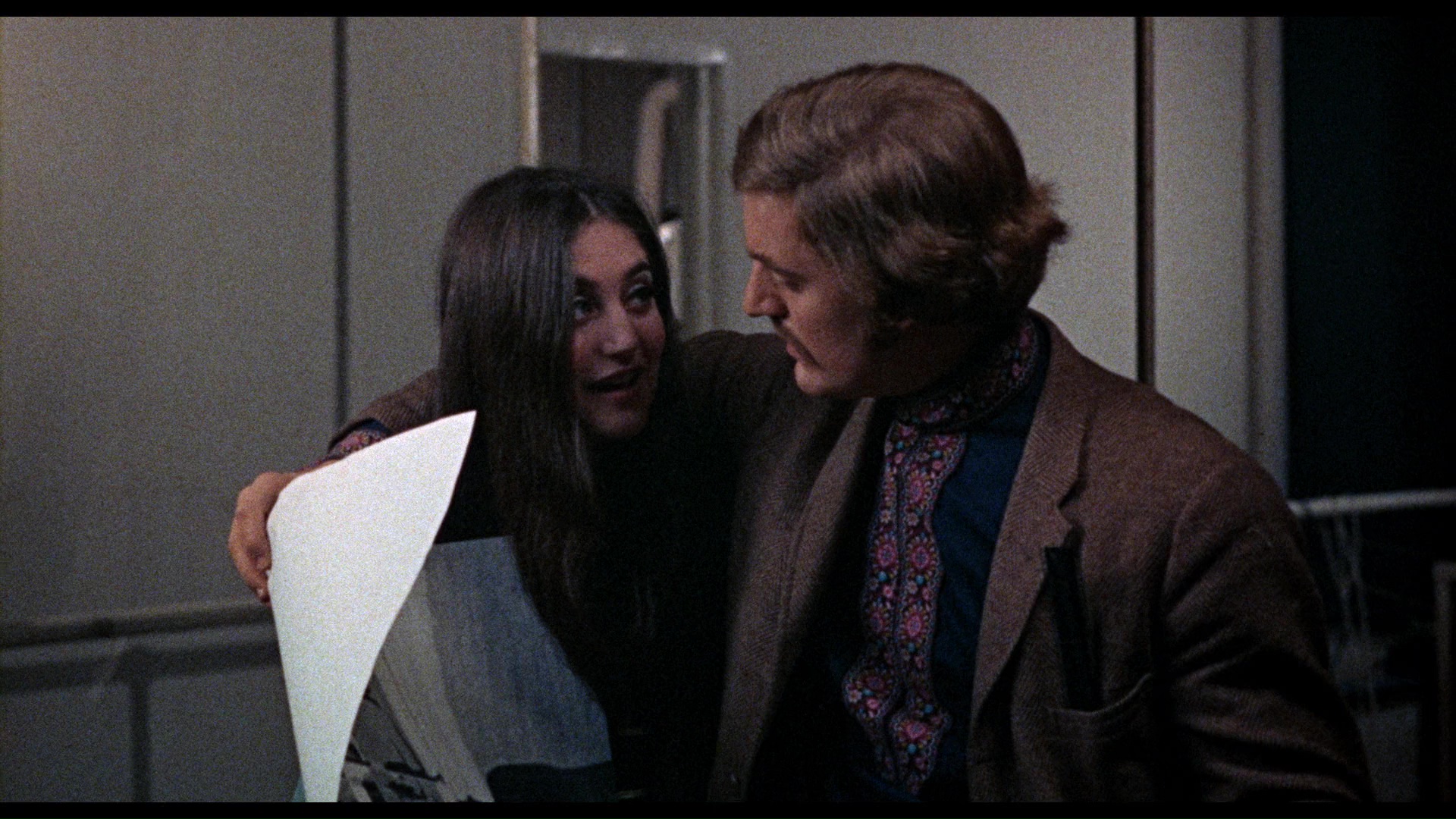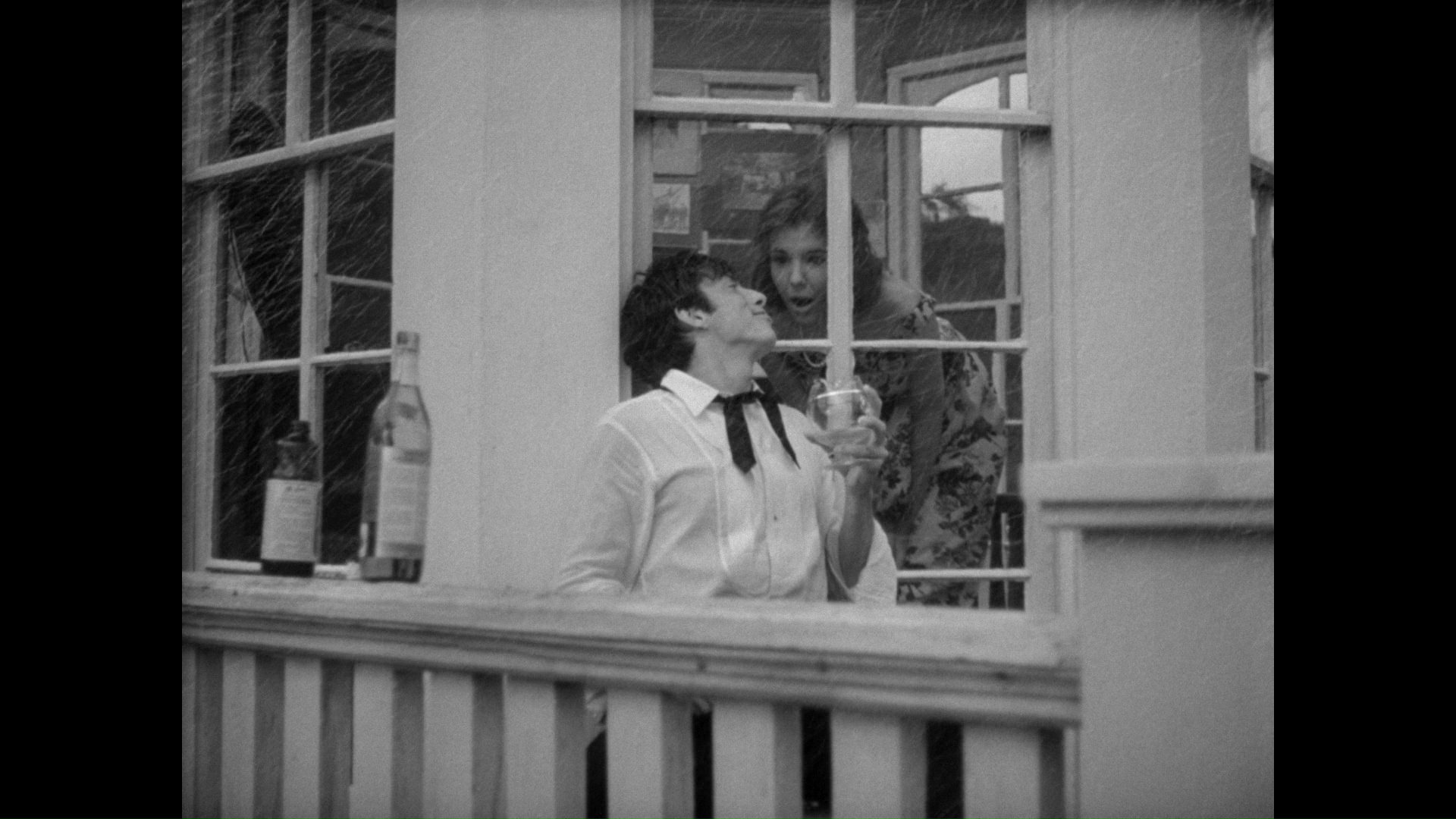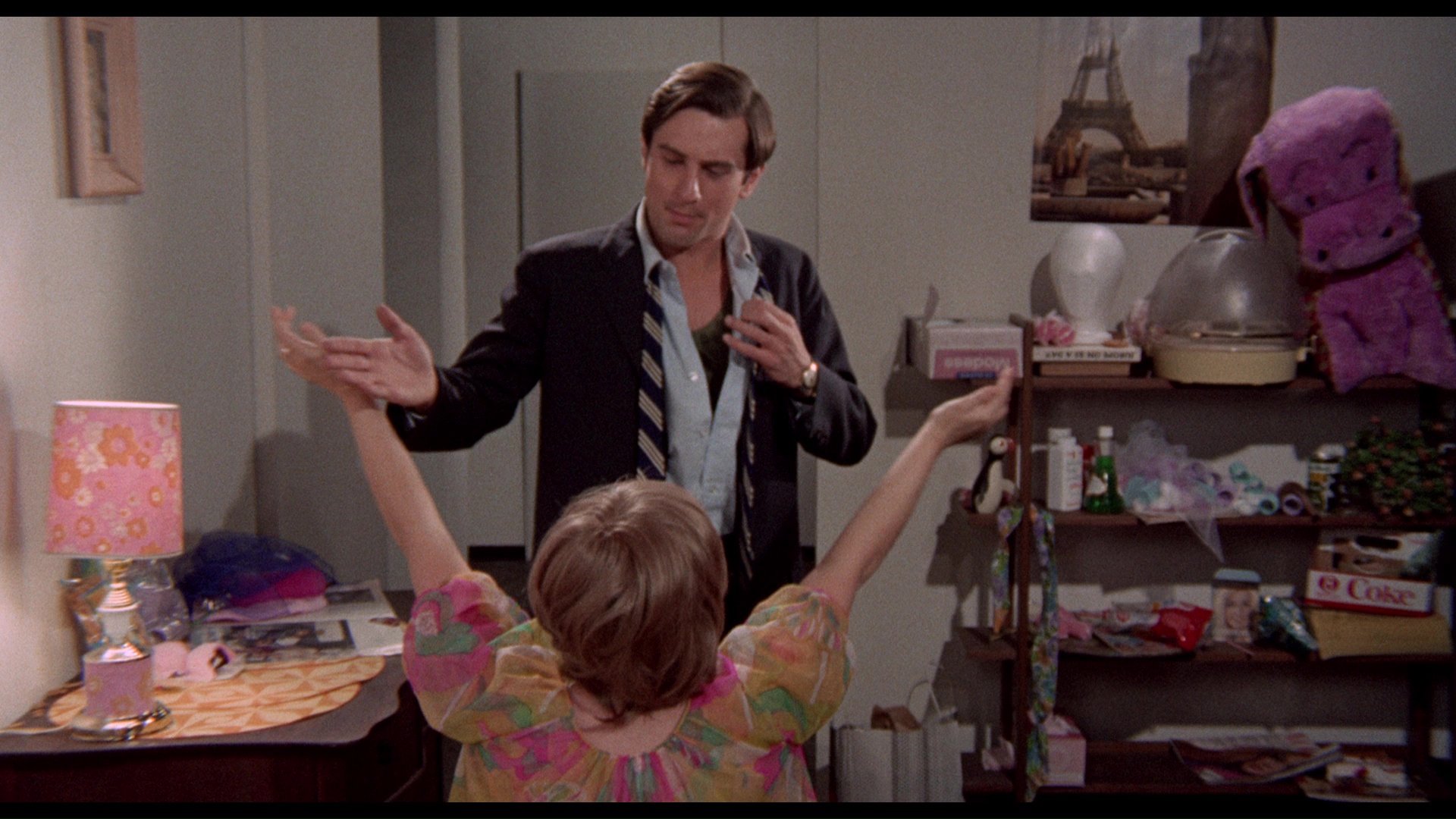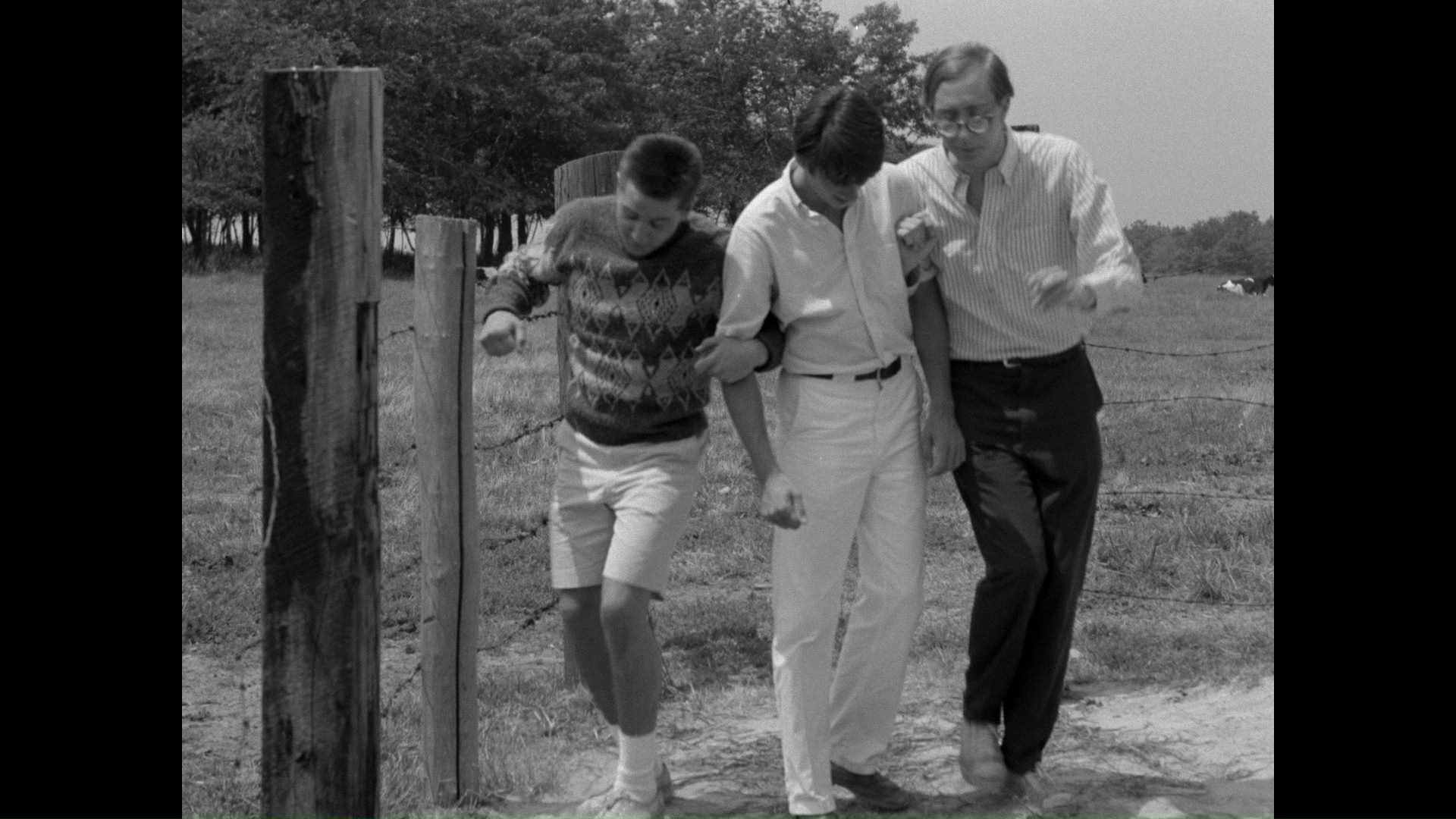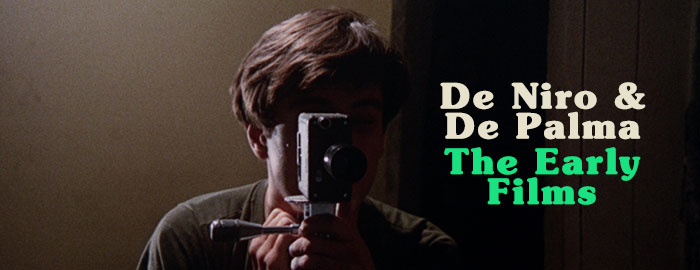
GREETINGS HI, MOM!
Color, 1968, 87 mins. 24 secs.
Directed by Brian De Palma
Starring Robert De Niro, Jonathan Warden, Gerrit Graham, Richard Hamilton, Megan McCormick, Allen Garfield
Arrow Video (Blu-ray) (US RA/RB HD) / WS (1.85:1) (16:9), Platinum (DVD) (US R1 NTSC)
THE WEDDING PARTY
B&W, 1969, 91 mins. 48 secs.
Directed by Brian De Palma, Wilford Leach and Cynthia Munroe
Starring Charles Pfluger, Jill Clayburgh, Robert De Niro, William Finley, Jennifer Salt
Arrow Video (Blu-ray) (US RA/RB HD), Troma (DVD) (US R0 NTSC)
Color, 1970, 86 mins. 31 secs.
Directed by Brian De Palma
Starring Robert De Niro, Allen Garfield, Lara Parker, Jennifer Salt, Gerrit Graham, Paul Bartel, Charles Durning
Arrow Video (Blu-ray) (US RA/RB HD), MGM (DVD) (US R1 NTSC) / WS (1.85:1) (16:9)
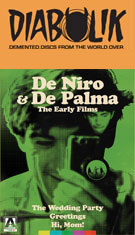
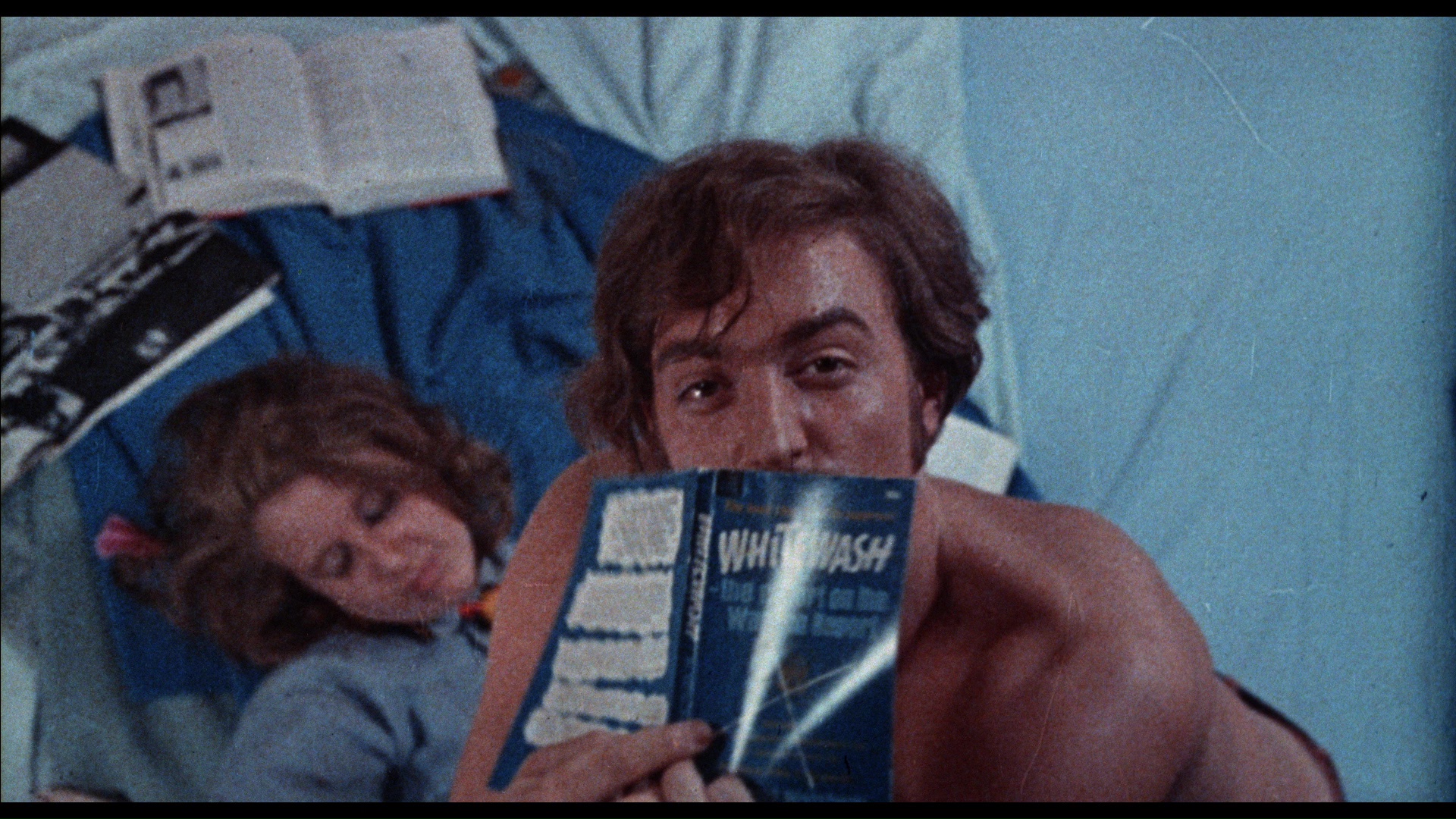
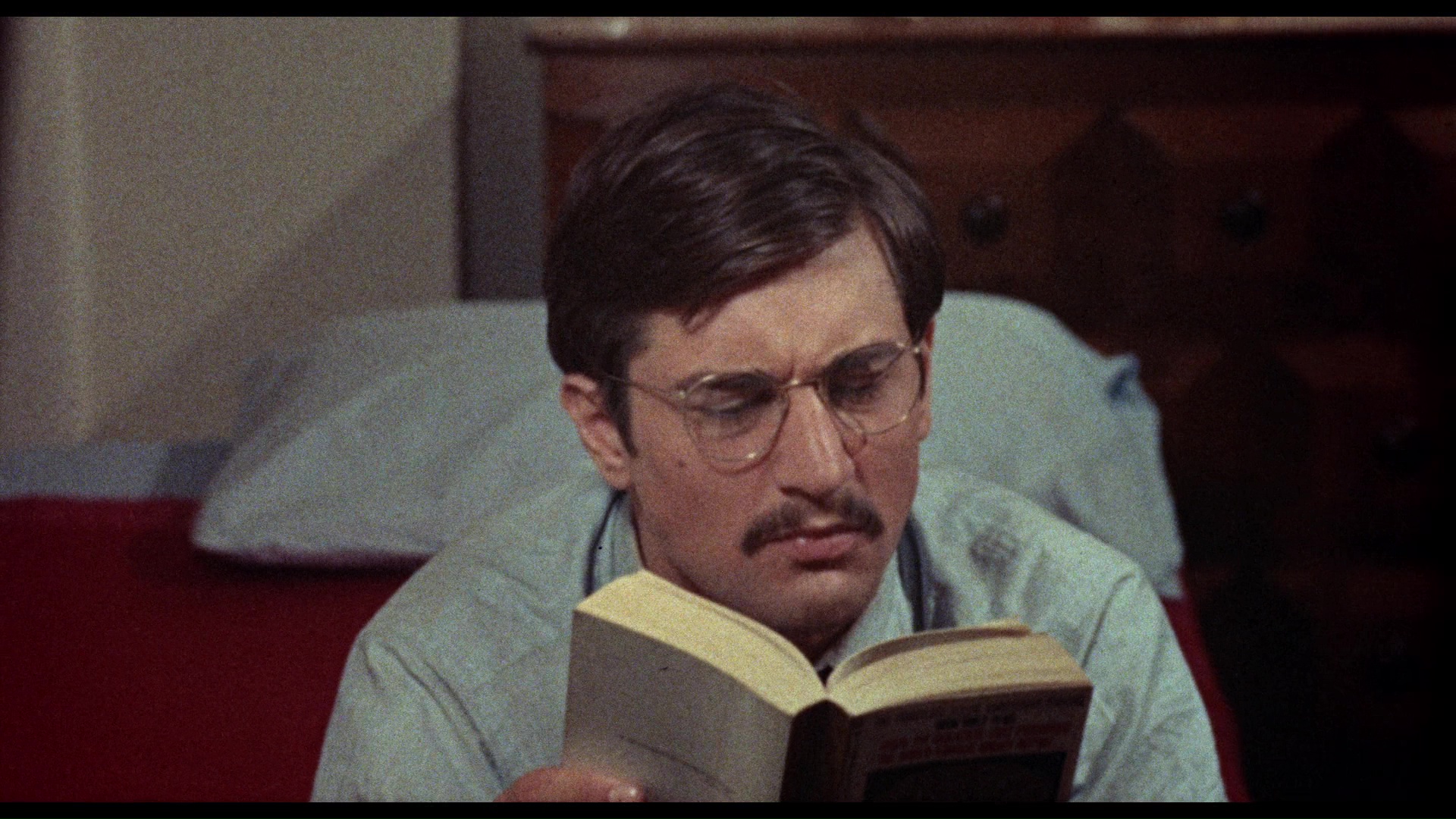 known today for his suspense and action films, Brian De Palma has always had a subversive, playful, and experimental streak running through his work dating all the way back to his early short films. His big breakthrough, the acclaimed chiller Sisters, is a great example of how he incorporated his puckish side into the demands of commercial filmmaking, and in fact that was his sixth traditional feature film. Before that he was known primarily for his freewheeling comedy Greetings, which earned its place in the history books as the first film given an X rating by the MPAA. (Bear in mind that's a 1968 X rating, a la Midnight Cowboy, so it's quite tame by today's standards.) De Palma's first feature to be filmed, The Wedding Party, was shot in 1963 and marked the first of his collaborations with Robert De NIro, a figurehead of sorts for his early comedies and later to return to play Al Capone in De Palma's The Untouchables. However, The Wedding Party didn't finish post-production until three years later and wouldn't get a release until 1969, hot on the heels of Greetings. Of course, the success of that latter film led to a direct sequel in 1970, Hi, Mom!, while the same four-year period also saw other De Palma projects including the borderline avant garde thriller Murder à la Mod (technically his first released feature and included as a bonus on Criterion's Blow Out), the very troubled studio project Get to Know Your Rabbit, and
known today for his suspense and action films, Brian De Palma has always had a subversive, playful, and experimental streak running through his work dating all the way back to his early short films. His big breakthrough, the acclaimed chiller Sisters, is a great example of how he incorporated his puckish side into the demands of commercial filmmaking, and in fact that was his sixth traditional feature film. Before that he was known primarily for his freewheeling comedy Greetings, which earned its place in the history books as the first film given an X rating by the MPAA. (Bear in mind that's a 1968 X rating, a la Midnight Cowboy, so it's quite tame by today's standards.) De Palma's first feature to be filmed, The Wedding Party, was shot in 1963 and marked the first of his collaborations with Robert De NIro, a figurehead of sorts for his early comedies and later to return to play Al Capone in De Palma's The Untouchables. However, The Wedding Party didn't finish post-production until three years later and wouldn't get a release until 1969, hot on the heels of Greetings. Of course, the success of that latter film led to a direct sequel in 1970, Hi, Mom!, while the same four-year period also saw other De Palma projects including the borderline avant garde thriller Murder à la Mod (technically his first released feature and included as a bonus on Criterion's Blow Out), the very troubled studio project Get to Know Your Rabbit, and 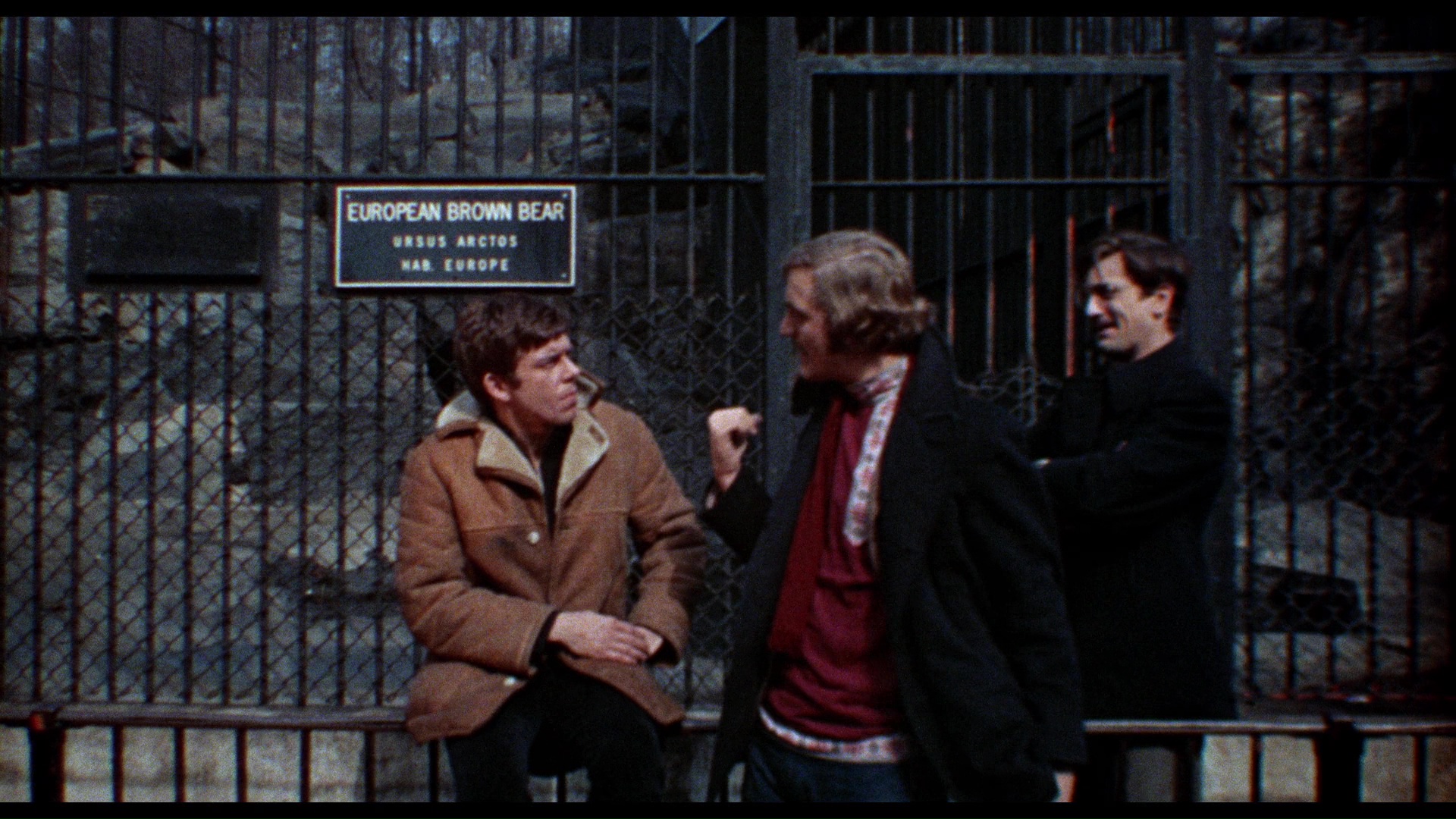 the counterculture split-screen filmed play, Dionysus in '69. All three of the early De Palma / De Niro ventures have been around on home video in separate editions of varying degrees of quality over the years, but they finally joined together in 2018 as a welcome boxed set from Arrow Video, De Niro & De Palma: The Early Films.
the counterculture split-screen filmed play, Dionysus in '69. All three of the early De Palma / De Niro ventures have been around on home video in separate editions of varying degrees of quality over the years, but they finally joined together in 2018 as a welcome boxed set from Arrow Video, De Niro & De Palma: The Early Films. 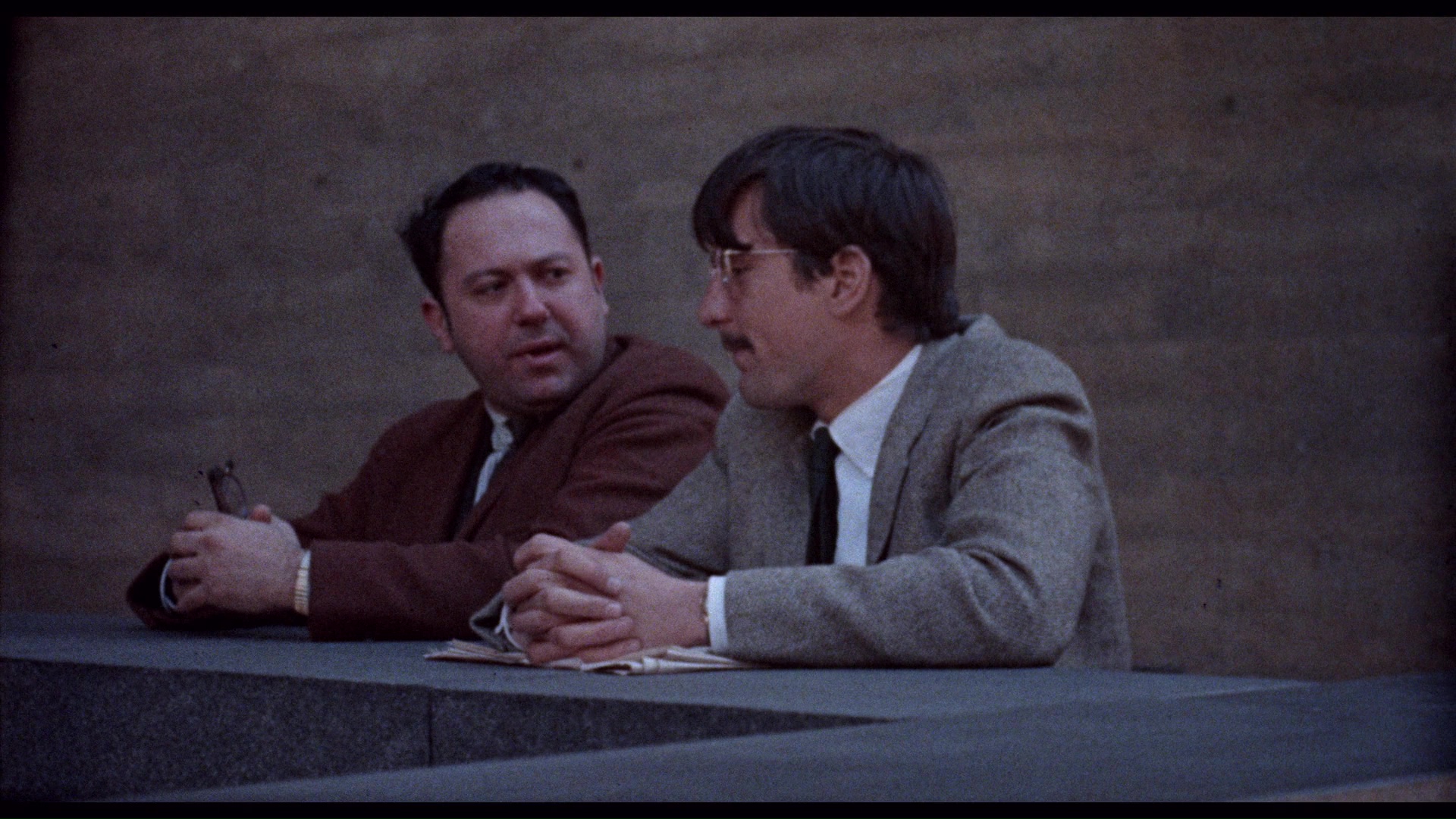
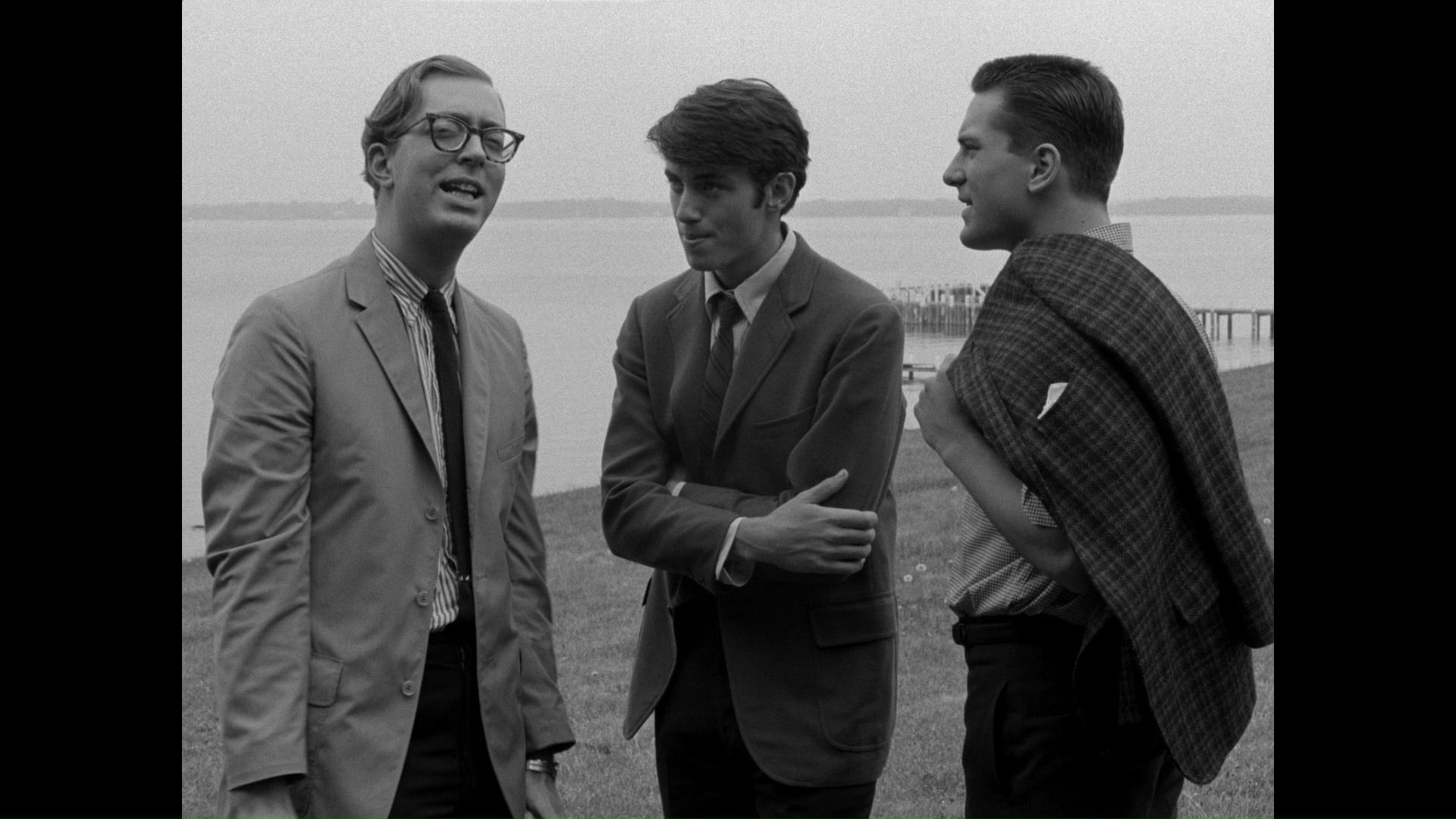 him on the path to even more extreme behavior. Put together, the films lay the groundwork for the obsessive cinephilia that would come into
him on the path to even more extreme behavior. Put together, the films lay the groundwork for the obsessive cinephilia that would come into  play in later De Palma films, most obviously with the thematically similar Home Movies (which is in dire need of a good transfer and would have been a great companion piece to this set). The fragmented presentation of Vietnam would rear its head again as well in Casualties of War, while the cinema-centered treatment of war would become the entire focus of his divisive Redacted. Mainly though these are a great opportunity to see De Palma in full-on satire mode, something critics seemed to forget about and completely misread in his later films.
play in later De Palma films, most obviously with the thematically similar Home Movies (which is in dire need of a good transfer and would have been a great companion piece to this set). The fragmented presentation of Vietnam would rear its head again as well in Casualties of War, while the cinema-centered treatment of war would become the entire focus of his divisive Redacted. Mainly though these are a great opportunity to see De Palma in full-on satire mode, something critics seemed to forget about and completely misread in his later films. 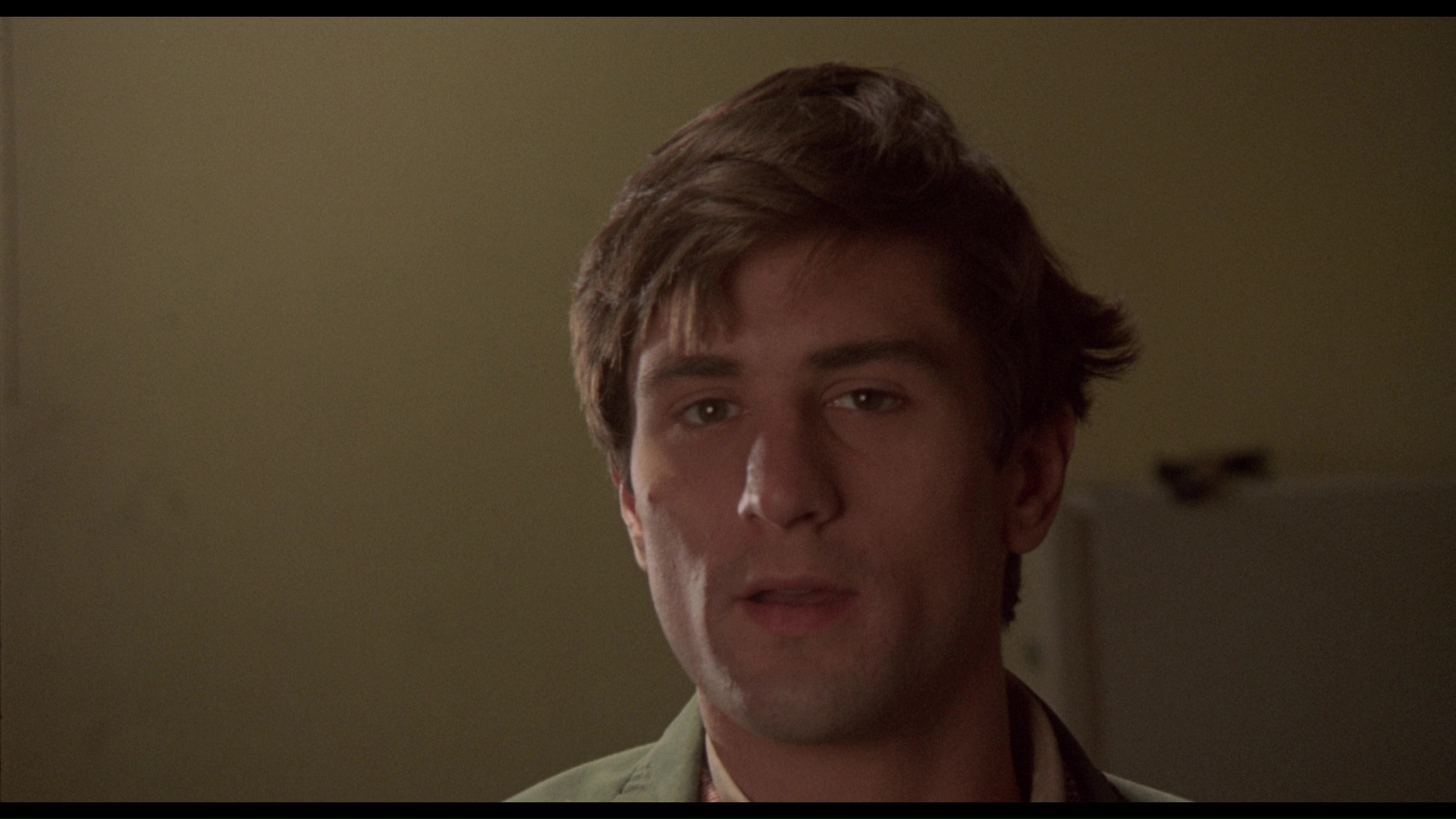 well-to-do family, the Fishes, are using their estate as home base for the festivities, but Charlie turns out to be less gung ho about tying the knot than he initially appears. Quirky characters abound as the groomsmen do their best to help him make up his mind without destroying his life. Slight but fascinating as a chance to see De Palma essentially operating on training wheels, the film may baffle newcomers but serves as a vital entry in his filmography. Most notably it marks his first time out not only with De Niro but with Finley, later the star of Phantom of the Paradise and a scene-stealing supporting player in The Fury and The Black Dahlia, and Jennifer Salt, who would go on to star in Sisters.
well-to-do family, the Fishes, are using their estate as home base for the festivities, but Charlie turns out to be less gung ho about tying the knot than he initially appears. Quirky characters abound as the groomsmen do their best to help him make up his mind without destroying his life. Slight but fascinating as a chance to see De Palma essentially operating on training wheels, the film may baffle newcomers but serves as a vital entry in his filmography. Most notably it marks his first time out not only with De Niro but with Finley, later the star of Phantom of the Paradise and a scene-stealing supporting player in The Fury and The Black Dahlia, and Jennifer Salt, who would go on to star in Sisters.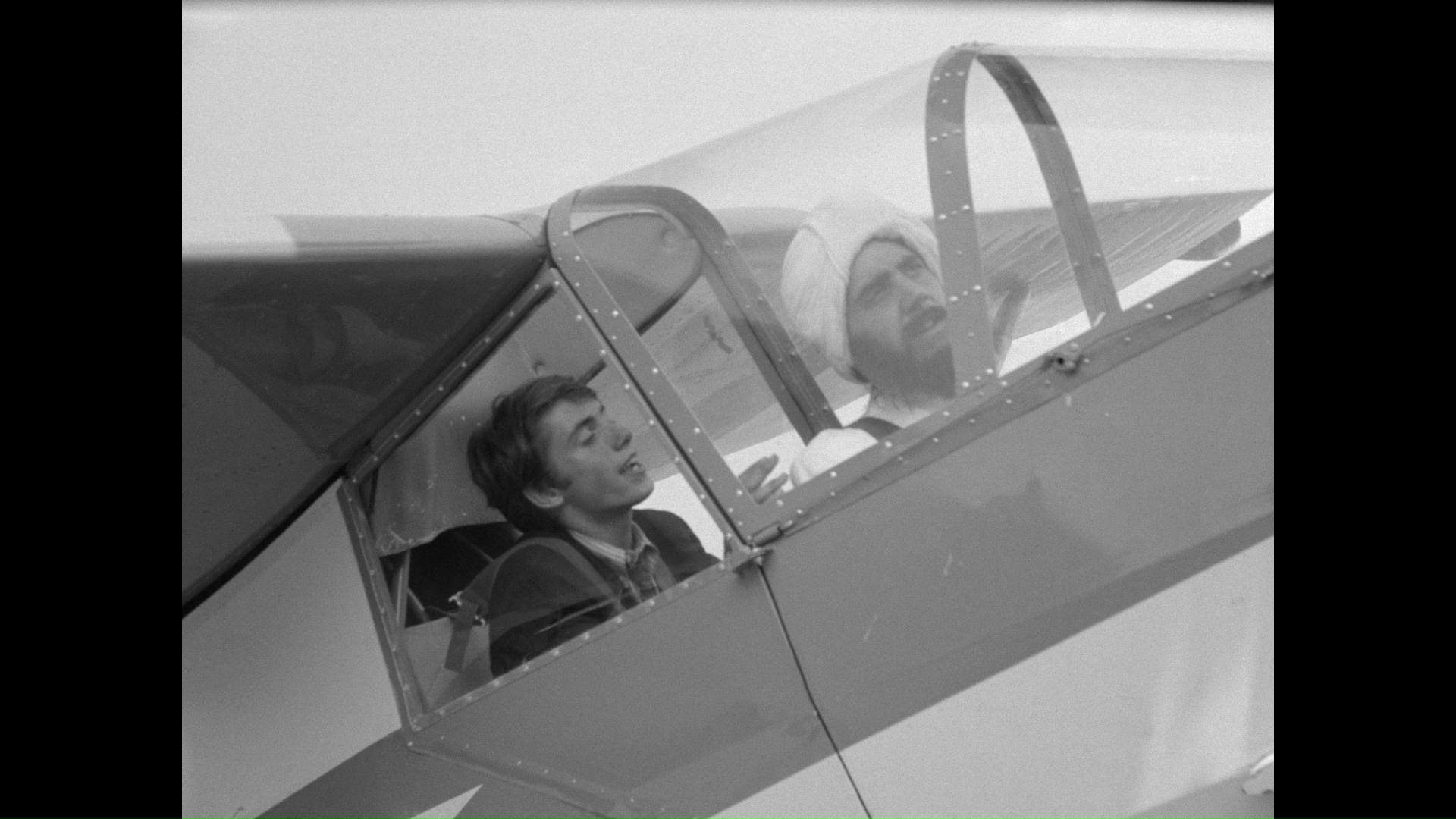
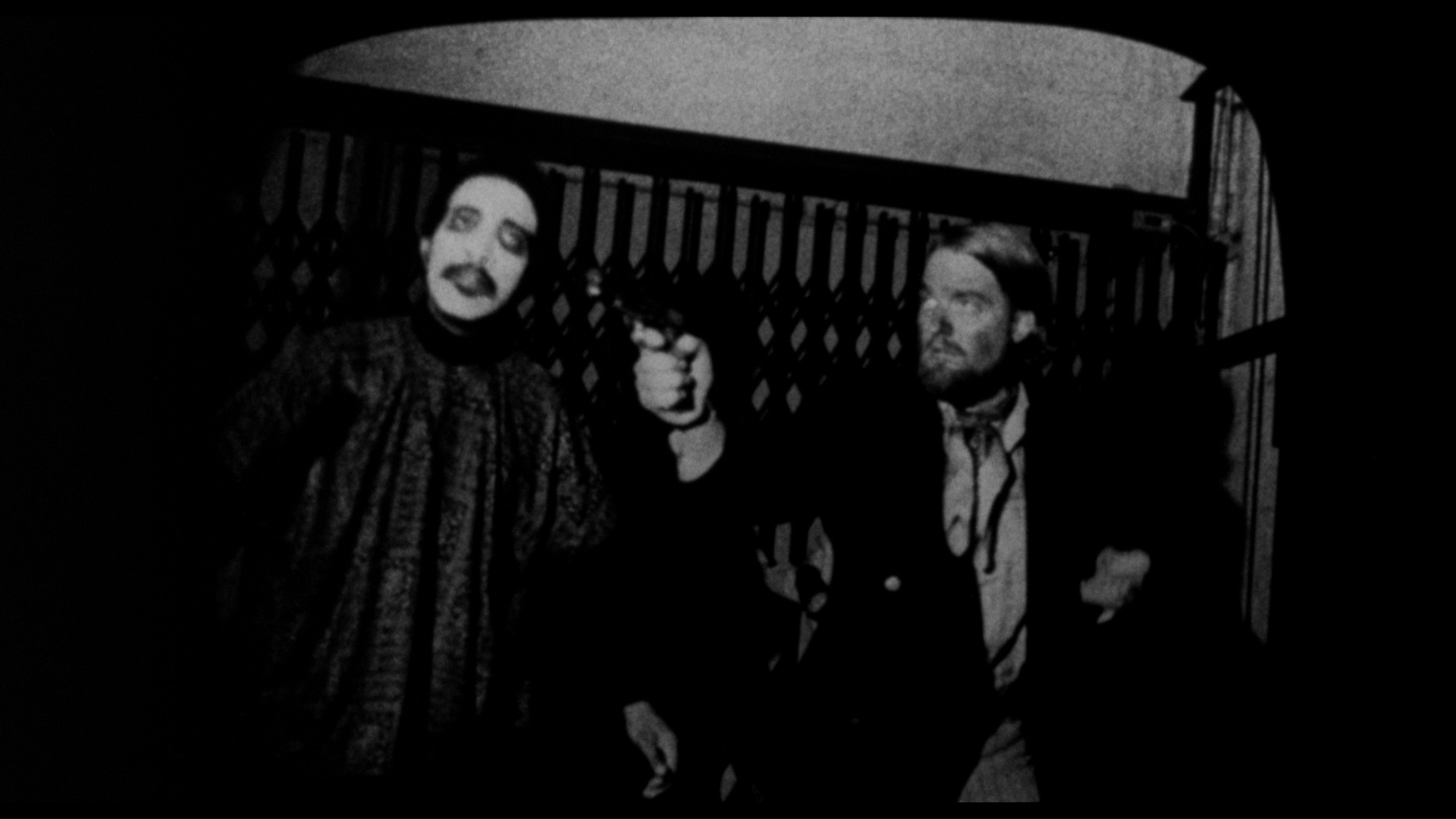 was trimmed to avoid an X rating.) Greetings only hit DVD in a full frame edition from budget label Platinum, though it was actually one of their best-looking releases; meanwhile The Wedding Party was put out in a grimy-looking DVD edition from Troma in 2005.
was trimmed to avoid an X rating.) Greetings only hit DVD in a full frame edition from budget label Platinum, though it was actually one of their best-looking releases; meanwhile The Wedding Party was put out in a grimy-looking DVD edition from Troma in 2005. 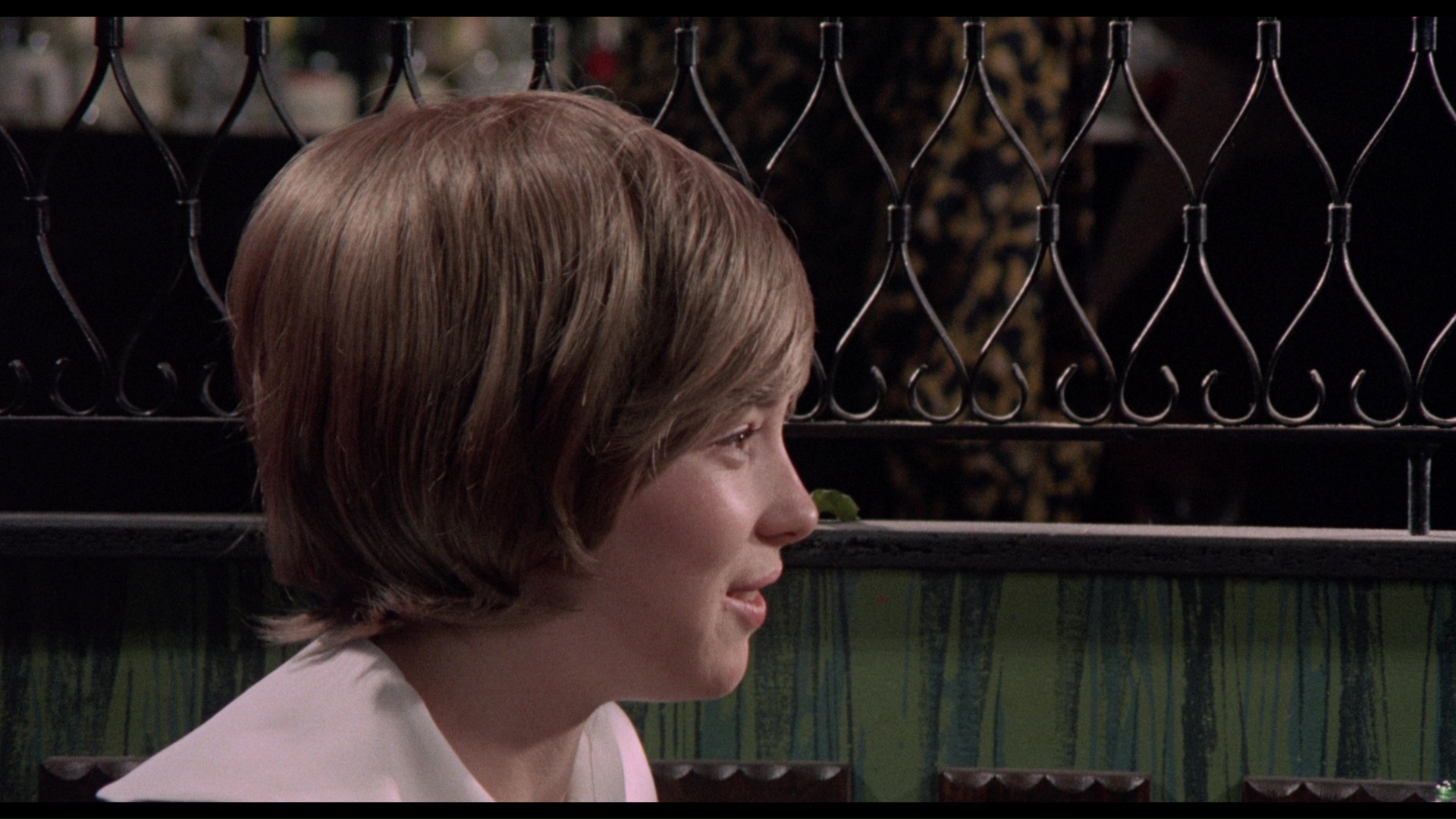
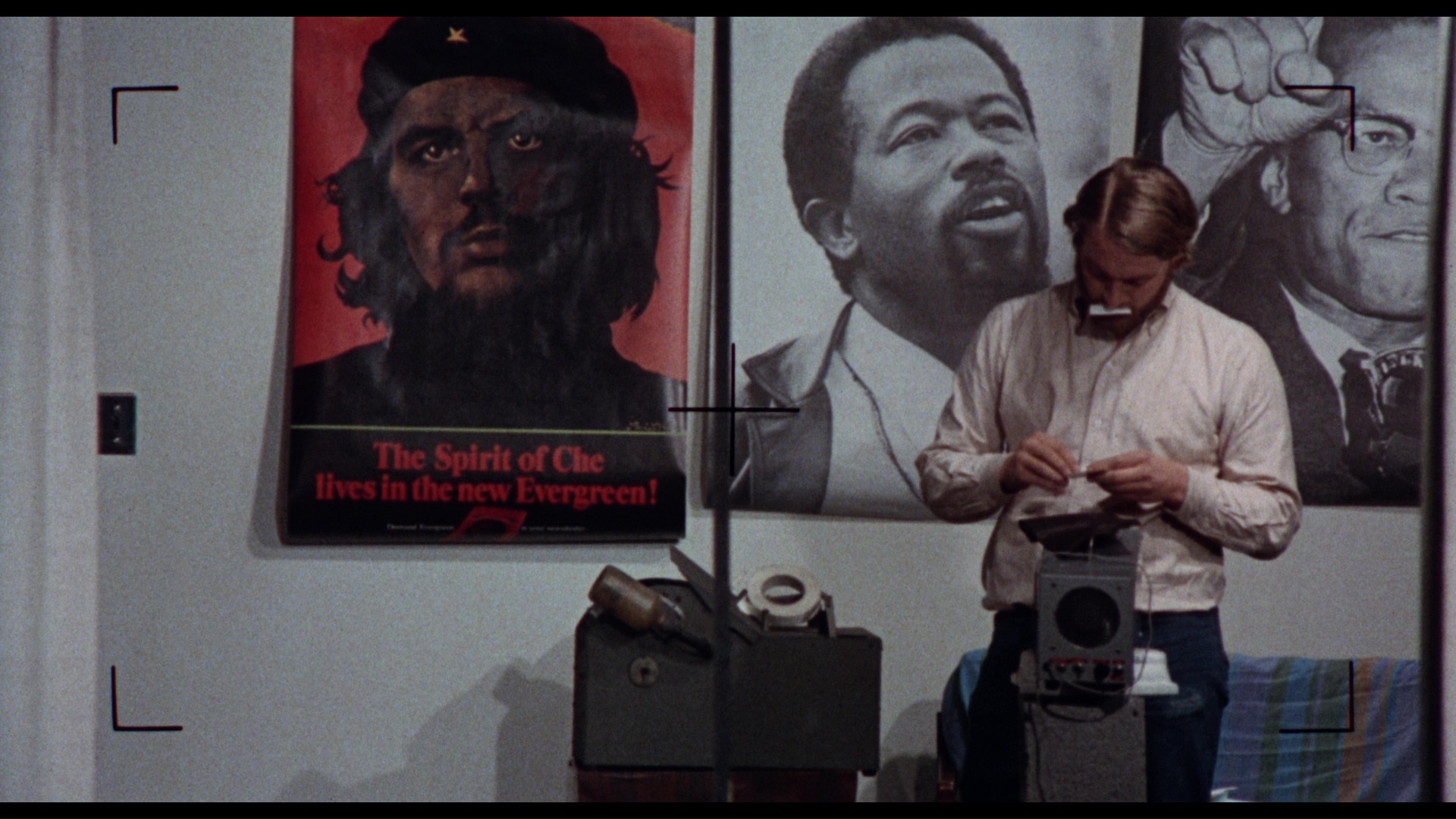 Richard Lester and Jean-Luc Godard, and the future career paths (or lack thereof) for the key players. "De Palma: Early Years" (11m41s) features filmmaker and Destructible Man co-founder Howard S. Berger charting the evolution of De Niro's Rubin character through the two films and its ties to related presence media including books and television that reflect the zeitgeist of the era. He also touches on The Wedding Party in the final stretch, noting how its island presence prefigures Sisters and ties in to De Palma's portrayals of New York. Both discs feature relevant interviews with
Richard Lester and Jean-Luc Godard, and the future career paths (or lack thereof) for the key players. "De Palma: Early Years" (11m41s) features filmmaker and Destructible Man co-founder Howard S. Berger charting the evolution of De Niro's Rubin character through the two films and its ties to related presence media including books and television that reflect the zeitgeist of the era. He also touches on The Wedding Party in the final stretch, noting how its island presence prefigures Sisters and ties in to De Palma's portrayals of New York. Both discs feature relevant interviews with 